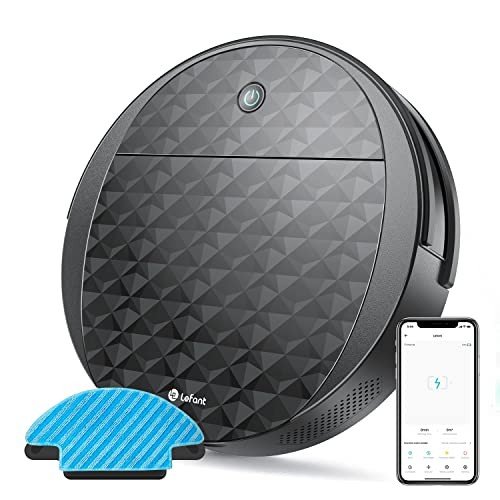The Rise of Automatic Vacuum Cleaners: A Comprehensive Guide
In today's busy world, keeping a clean home can often feel like a burden. As such, automatic vacuum cleaners-- commonly referred to as robotic vacuums-- have risen in popularity, offering a useful option for busy households. This article explores the crucial features, benefits, types, and maintenance of automatic vacuum cleaners, enabling customers to make educated decisions.
Comprehending Automatic Vacuum Cleaners
Automatic vacuum cleaners are autonomous devices developed to tidy floors with minimal human intervention. Geared up with sophisticated sensors and shows, these gadgets can browse around furniture, adjust to different floor types, and even recharge themselves.
Secret Features of Automatic Vacuum Cleaners
| Function | Description |
|---|---|
| Navigation System | Makes use of sensing units and mapping technology to prevent challenges and effectively cover floor space. |
| Cleaning Modes | Different modes such as auto, area, edge, and scheduled cleaning for different needs. |
| Smart Connectivity | Numerous designs can link to Wi-Fi, permitting control through mobile phone apps or voice-activated devices like Alexa or Google Assistant. |
| Self-Charging | Automatically returns to its charging dock when the battery is low. |
| Dustbin Capacity | Different designs come with differing sizes of dustbins, affecting how typically they require to be cleared. |
Advantages of Automatic Vacuum Cleaners
Automatic vacuum cleaners bring numerous benefits to the table:
Convenience
- Hands-Free Cleaning: Keep floorings clean with very little effort. Once configured, robot cleaner UK runs autonomously, freeing up time for other tasks.
- Push-button control: Users can begin, stop, or schedule cleansings from their smart devices, making it simpler to manage cleaning routines.
Efficiency
- Arranged Cleaning: Set your vacuum to clean while you're out, ensuring you return to a tidy home.
- Adaptive Cleaning: These vacuums typically adjust their cleaning patterns based on floor type, optimizing efficiency on tough surface areas and carpets alike.
Cost-Effectiveness
- Lowered Labor Costs: While there is an upfront financial investment, continuous savings arise from less dependence on expert cleaning company.
- Toughness: Many automatic vacuums are constructed to last, with changeable parts that extend their life-span, making them a rewarding long-term financial investment.
Types of Automatic Vacuum Cleaners
There are several classifications of robotic vacuums, each accommodating various requirements:
Basic Robotic Vacuums:
- Suitable for general cleaning and readily available at moderate cost points.
- Limited in features; typically lack innovative navigation and wise connectivity.
Smart Robotic Vacuums:
- Equipped with Wi-Fi connectivity and can be managed through mobile apps.
- May include functions like mapping technology for efficient cleaning routes.
Hybrid Models:
- Combine vacuuming and mopping functions, perfect for surface areas needing both types of cleaning.
- Perfect for families with animals or children.
Specialized Robotic Vacuums:
- Designed for specific tasks, like family pet hair elimination, and might offer specific brushes and suction capabilities.
Maintenance of Automatic Vacuum Cleaners
To make sure optimum efficiency, routine maintenance is essential:
Cleaning Schedules
- Dustbin Emptying: Empty the dustbin after every usage or when the vacuum signals that it is full.
- Filter Replacement: Depending on the design, filters may require to be cleaned or replaced every couple of months.
Routine Checks
- Brushes and Wheels: Inspect and clean the brushes and wheels frequently to get rid of hair and particles that might prevent performance.
- Sensors and Cameras: Wipe the bump sensors and cameras to ensure unobstructed navigation.
Often Asked Questions (FAQs)
1. How much do automatic vacuum cleaners cost?
Costs vary widely-- from budget plan models starting around ₤ 150 to exceptional models costing above ₤ 1,000. Higher-priced alternatives usually use sophisticated features like smart mapping, longer battery life, and specialized cleaning modes.
2. Can automatic vacuum deal with pet hair?
Yes, most robotic vacuums are developed to deal with animal hair. Look for models specifically created with strong suction and pet hair filtering systems.
3. How long do automatic vacuum cleaners last?
The lifespan of a robotic vacuum can vary from 3 to 5 years, depending upon the model and upkeep. Regular upkeep can extend its durability.
4. Are automatic vacuum cleaners effective on carpets?
Most modern automatic vacuum cleaners are equipped with sensors that find carpeted surface areas and adjust suction power appropriately. However, effectiveness can differ based upon the kind of carpet.
5. Can robotic vacuums work on several floor types?
Yes, numerous robotic vacuums can seamlessly transition in between floor types, such as hardwood, laminate, tile, and carpets, optimizing their cleaning technique for each surface area.
The arrival of automatic vacuum cleaners has changed household cleaning, supplying benefit and liberty from the frequently tiresome chore of floor maintenance. By understanding the different types, functions, and maintenance requirements, consumers can make informed choices and ultimately enjoy a cleaner, more arranged living area. Whether you're a busy expert, an animal owner, or just someone who values a tidy home, buying an automatic vacuum can significantly improve your lifestyle.

